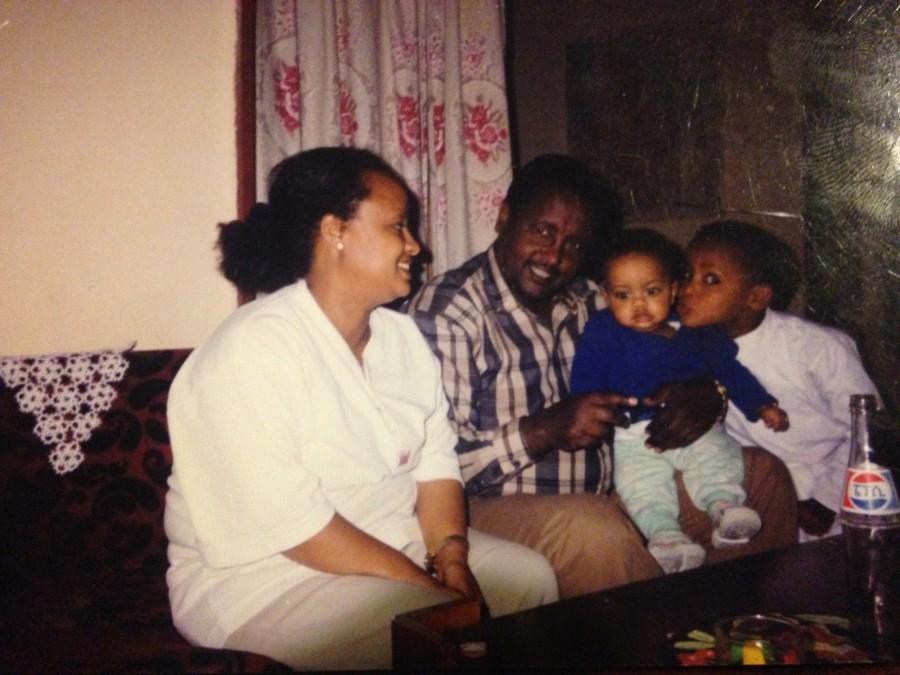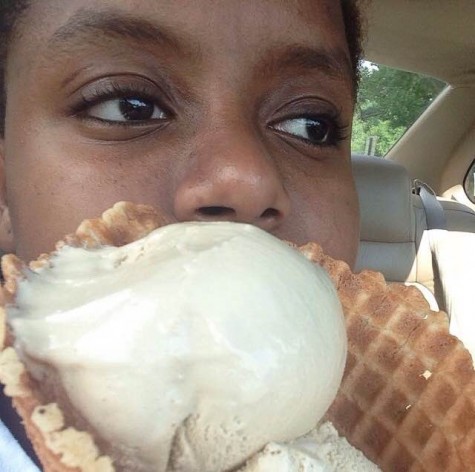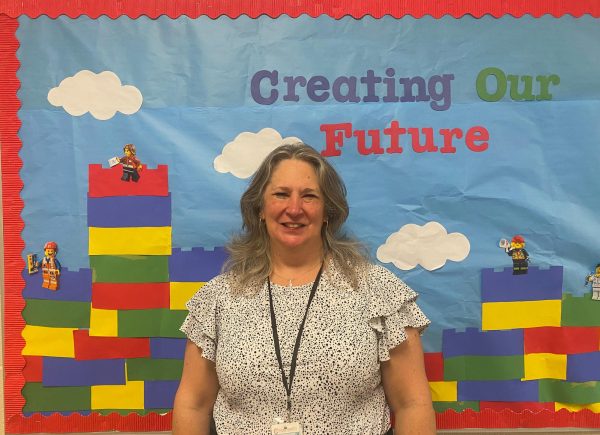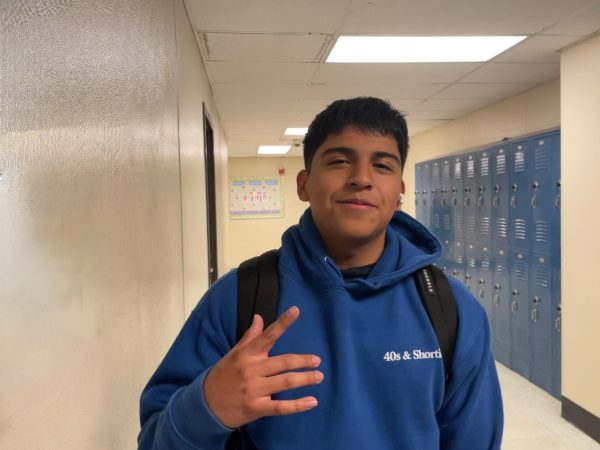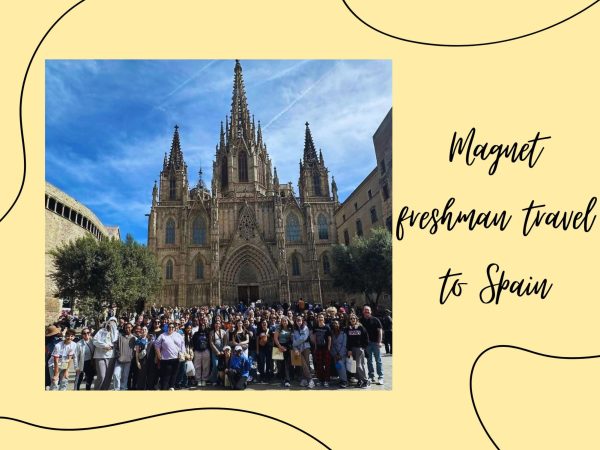Growing up foreign
Growing up with different cultures paved way for new experiences…and growing pains.
December 16, 2015
Kids across the world face the formidable task of growing up as they transition from children to adolescents to adults. As a child of immigrants, growing up with foreign parents only increases this difficulty.
My mother gave birth to me in Ethiopia on June 17, 1999. The year I turned three, my dad came to America as a political refugee; a month before my sixth birthday, my mom, brother, and I followed suit. Growing up, my family immersed me in Ethiopian culture. I ate Ethiopian food, listened to Ethiopian music, and wore Ethiopian clothes. For my first three months in America, television served as the only contact I received with any other culture.
My parents raised me the same way their parents raised them. They made sure school remained my first focus and that I respected them and other adults the most. I began to notice early on that other students did not follow the same rules, but it did not impact me until middle school. When I made friends, I did not attend birthday parties or go to the mall, or even hang out because it would get in the way of my studies. I did not like my parents’ rules, but I could not argue.
By the time I reached high school, my values did not align with my parents’. This resulted in arguments that seemed drastic at the time. Eventually as time went by, my parents began to “let loose” and allowed me to spend more time with friends. I saw the graciousness of my parents, but my friends exercised my newfound freedom years before.
In school, I saw first and second generation Americans who grew up similar to me. They did not spend time with their friends outside of school due to strict parents and realized the importance of respect at an early age. We talked about our surprise when we saw American kids talk loudly to their parents; a death sentence awaited us if we dared do the same. As I met more foreigners, I saw how my experiences aligned with theirs.
“I have definitely been raised with family and cultural traditions,” Garcia said. “Growing up, my parents were really strict and were sure to put emphasis on the importance of education because as immigrant parents, they understood the struggle to get a good job.”
Like most immigrant kids, her parents restricted her outings: “When I was younger, many American kids were able to go to the movies and stuff alone while my parents thought that was giving me too much freedom as a child.”
The limit on her time with friends lead to emotional struggles for Garcia: “I felt looked down upon because of my race in school but I don’t know if it was just stuff in my head because of the discrimination shown in our society towards people who don’t look American.”
Although she once saw herself as an outsider, Stefanie, with the help of her mother, now realizes she fits in: “[My mother and I] just talk about it and she helps me realize that I’m no different than the American kid, because I am one. She basically helps me gain the confidence I loose in a situation like that. Going back to the discrimination thing, [my mother] knows what it feels like to go through it, so she taught me that without hard work, you will get nowhere. She is probably one of the smartest and hardworking people I know. She has also taught me so much about generosity and how you always have to be helpful in any way possible if you are capable.”
Shawn Ali’s parents practice a religion preaching a personal relationship with God. As a kid, his parents made sure he explored religions and came to his own conclusion on what God means to him. His journey and parents’ guidance helped him realize the importance of tolerance and respect. Understanding his father’s struggles as a Persian political refugee, Shawn strives to make him proud while developing his own values.
“My parents are both pretty liberal; my mom is more so than my dad,” Ali said. “They raised me as a Baha’i which is a small religion that was founded in Iran. I’m more or less an atheist at this point though. The thing about the Baha’i faith is they believe that how spiritual you are is less determined by what religion you follow or how active you are in said religion, and more so how close you are to God. So my parents more so emphasized me being a good person versus me being heavily involved in religion.”
The importance of religion in different countries does not transfer to America. People can easily say they do not practice any religion or believe in any God. In other countries, religion and culture intertwine: one does not exist without the other. Parents expect their children to practice the family religion, and those who do not, usually do not admit it.
“My father was extremely persecuted for his religion,” Ali said. “He actually had to run away from Iran into Pakistan until he gained entry into the USA as a political refugee because he was going to either be imprisoned or forced into the front lines of war for his religious beliefs.”
As children of the current generation grow up and experience different types of people and ideas, they can deviate from the religion they grew up with. Nevertheless, the more traditional generations do not sway easily.
“Yes my father I think knows I’m not all that religious, but I definitely wouldn’t say I’m an atheist in front of him,” Ali said.
Ali and I share a similar story when it comes to our fathers. Both political refugees, they left their countries of origin due to an unstable government. Throughout their lives in America, they both constantly miss their homes.
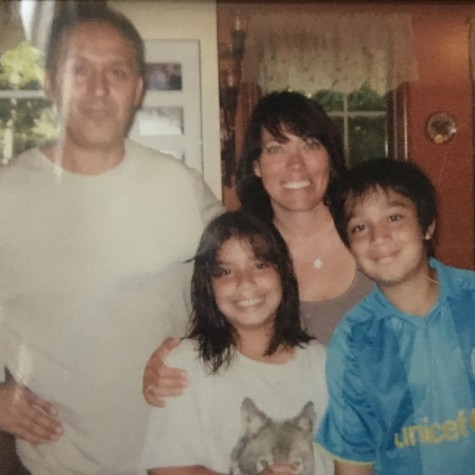
Shawn’s family has always been close. Sharing their beliefs while spending time together, different cultures allow them to connect in ways they otherwise could not have.
Ali explained how his father misses Iran: “Occasionally we will have discussions about the Middle East with it in the news and all and I’ll talk about the issues I have with the culture there and my dad will get very offended and stress to me that it is the government there and not the culture. He loves the country as a whole and is very patriotic. He does miss the people there a lot and he always talks about how amazingly open and beautiful the country was before the Islamic Revolution. This was the reason he had to escape the country.”
Ali’s parents raised him in a liberal household which influenced his behavior: “I mean I’ve had some more conservative phases but I’ve always been a more liberal person for sure, and as I get older I get more and more liberal.”
Like Garcia and Ali, I appreciate my parents and how they raised me. My dad sacrificed the life he knew to write about the changes required to fix a controlling government. He wanted me and my brother to grow up in a country where we could do whatever we wanted.
I did not realize how deep the government controlled the people’s minds until I visited two years ago. In the middle of a conversation with a family friend, we began to discuss college and the difficulty of choosing a career. The family friend began to talk about his gratefulness to the government for choosing people’s careers. To him, the process saved time and eased his worries. He failed to realize the government assigned him a better job due to his family’s high status.
My mother grew up in a misogynistic country that did not allow women to learn or succeed. She valued her education enough to strive for college and earn




